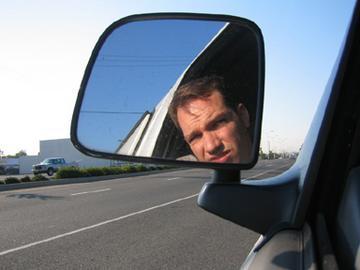Merle Haggard, Bob Wills, and The San Francisco Jazz Festival 2002
This originally ran in the Redding Record Searchlight in November 2002.It is a universal truth that that which is not easily categorized is not easily understood. As rational beings, we have the capability to scrutinize that which exists on the fringes of categorization, but this requires desire and attention to detail. Thus, in order to understand things that defy categorization, one must want to spend the time to investigate them.
Once upon a time, complexity and depth were the marks of great artists and it was possible for artists to consciously or sub-consciously mix styles or media and forge new ground while enjoying a measure of success. In today’s music industry, when desire and attention to detail are detrimental attributes in the eyes of most popular music marketers, defying categorization is a form of career suicide.
Those who have taken the time to investigate the music of Bob Wills and Merle Haggard, both of whom have often been categorized simply as country musicians, have been privy to a unique, diverse, and wonderful artistic world. On Friday night, at the San Francisco Jazz Festival, both Merle Haggard and Bob Wills will receive such acknowledgement as Jazz writers and performers.
Bob Wills was the leader of the legendary Texas Playboys, an ensemble that, over the better part of 40 years, evolved from a horn-centered big band to a stripped down electric guitar-driven combo, all the while playing a fusion of Swing, Jazz, Blues, Mariachi, and pop music. Regardless of this musical depth and diversity, Bob Wills music, as well as that of Merle Haggard, suffered categorization as “Damn Hillbilly Music.”
Merle Haggard has always been a vocal fan of Bob Wills and has taken a similar approach to music. Haggard’s band has included many of the former members of Wills’ great ensembles. Haggard has always paid tribute to and drawn heavily on his musical roots, as illustrated by his tribute albums to Jimmy Rodgers (1969’s “Same Train, Different Time”) and Bob Wills (1970’s “The Best Damn Fiddle Player in the World”) and most recently, by his “Roots Volume 1” and “The Peer Sessions,” albums of songs by great the writers of country and western music. Haggard has also experimented more modern styles of music as witnessed by the hard blues of “Working Man’s Blues,” the disco undertones of “Always on a mountain when I fall,” the Latin feel of “Crazy Moon,” and the Tin Pan Alley treatment of “Think About a Lullaby.” He has always managed to keep one musical foot strongly rooted in the past with the other deftly moving through the present toward the future.
First and Foremost, looking at his career as a whole entity, Merle Haggard is a Jazz composer and performer. He cannot be categorized as simply a “Country Music Legend” or as playing “The Bakersfield sound.” Haggard deserves recognition as a world-class Jazz singer and as one of the great writers of modern song. Thus, his inclusion in the San Francisco Jazz Festival, one of the most prestigious Jazz festivals in the world, playing the music of Bob Wills, is a well-deserved and respectful nod to two of the most innovative musical artists of the 20th century.
[+/-] read/hide this post

